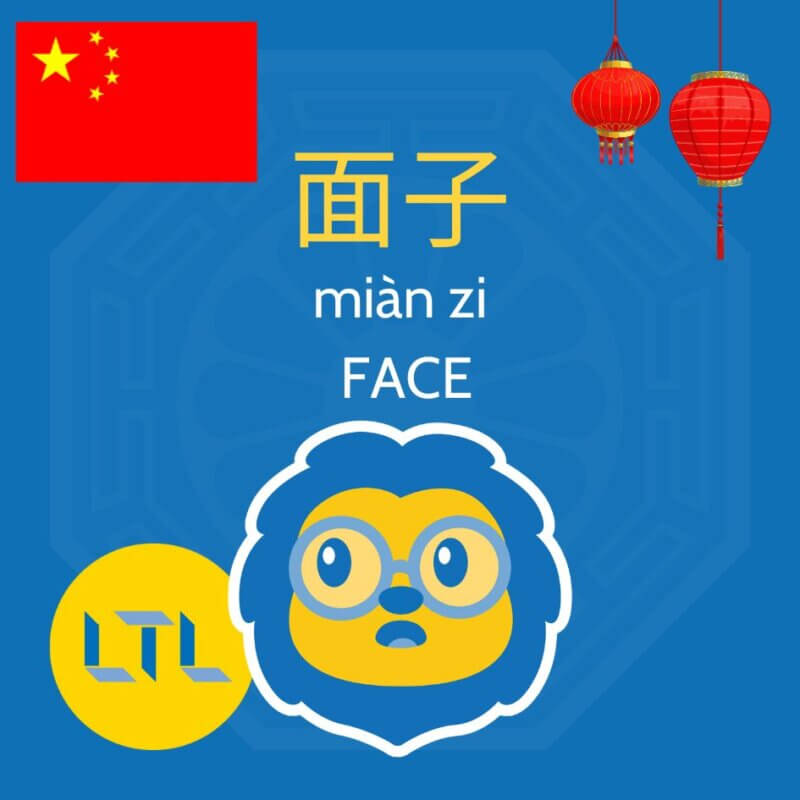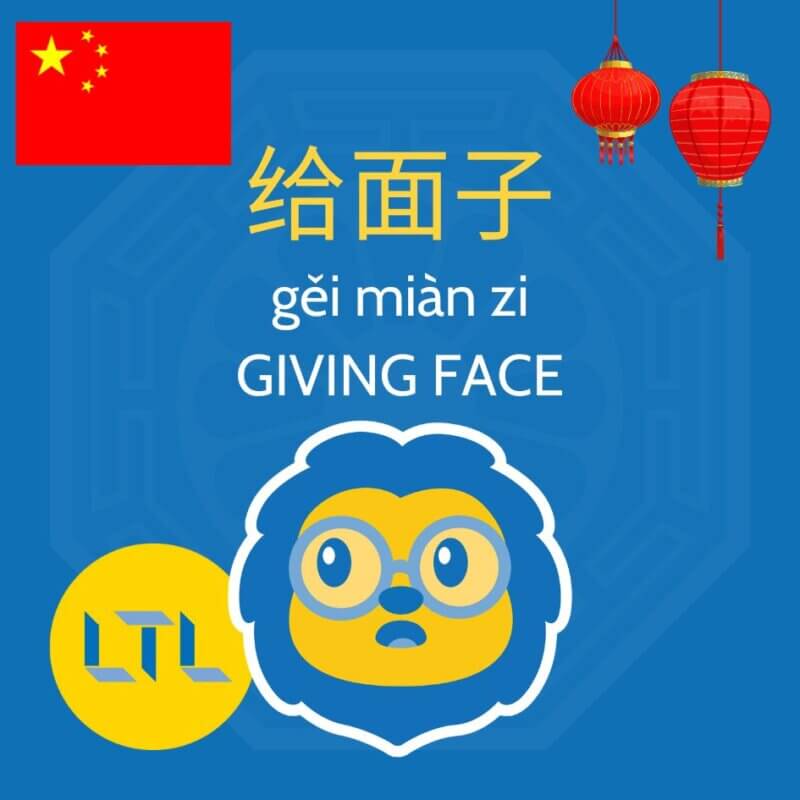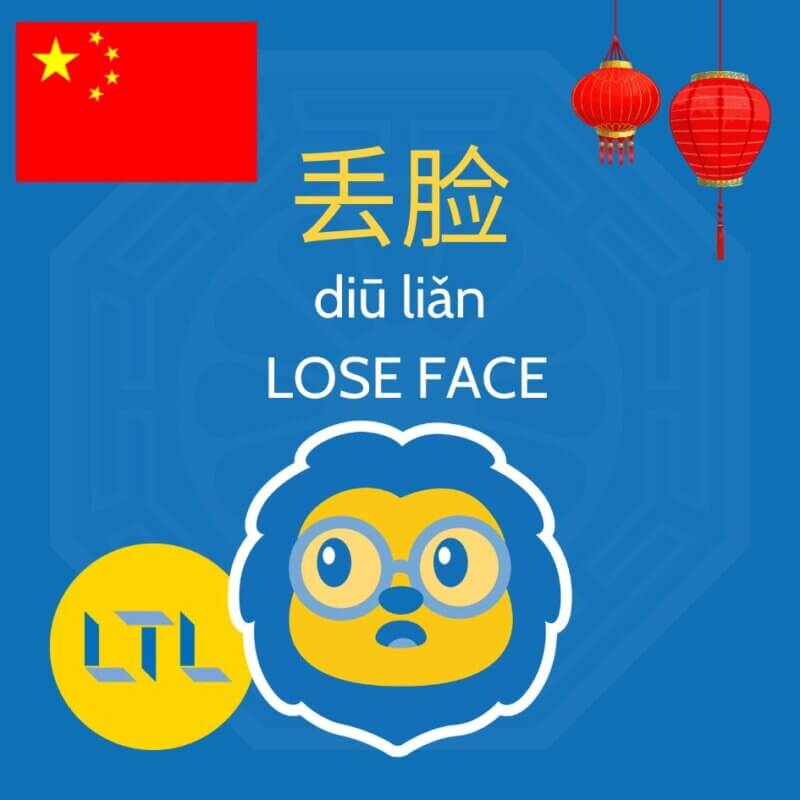Discover Chinese Culture || A Closer Look at 面子

We’re sure if you’ve been to China or if you are familiar with Chinese culture you’ve come across the term “miànzi”(面子).
If not – let’s get you up to speed…
The direct translation of “miànzi” is face.
Similar to the Western idea of reputation, ‘face’ describes one’s reputation or dignity in social contexts.
And guess what? It’s a really important concept in China.
The Chinese meaning of ‘having face’ is very different and has lots of hidden layers.
In this article we will help you navigate your way through this concept and how it plays a part in Chinese society.
Although at first it can seem quite complex term to understand, you’ll soon get the hang of it to avoid any potential embarrassing situations.
Mianzi || What Does it Mean?
Mianzi || Different Expressions
Mianzi || Why is it Important?
Mianzi || FAQ’s
Chinese ‘Mianzi’ || What Does it Mean?
The concepts of honour, prestige, and respect exists in every culture but in China and other Asian societies, they play an instrumental part of most social interactions.

In many ways, “miànzi” can be further understood as the ‘unwritten’ rules that revolve around non-verbal communication.
For instance, an answer to a question might be too embarrassing to say and thus in order to ‘save face‘ the actual answer can sometimes only be read in between the lines.
Furthermore, 面子 promotes trust and it means that you are respected by your peers including family.
Hence, miànzi plays a crucial role in building ‘guan xi‘, connections (关系,guānxì) with others.
From a Western perspective, it is significantly different from the Western view of social status.
In China, the role of face is intertwined in the day-to-day lives of the Chinese.
One should always be aware of one’s own face and make considerations to preserve the face of others.
Thus, it is much less to do with the individual perspective but with the collective interests and opinion.

Chinese Kitchen Essentials 🧄 5 Key Ingredients for an Authentic Taste
Want to make Chinese food at home but doesn’t know where to start? These five Chinese kitchen essentials will get you started in no time.
Chinese ‘Mianzi’ || Different Expressions
There are many different expressions using the word ‘miànzi’ that are important to understand and to play your cards right!
These are the following:
Having Face 有面子 yǒu miànzi
This is always a good thing, if you have face then you have a good reputation and giving your word is considered as good as gold!
Giving Face 给面子 gěi miànzi

This refers to certain actions that show respect and thus ‘give face’ to people.
Common examples are giving someone a compliment, toasting at a banquet, paying a bill, giving a present or gift, keeping one’s word, or helping someone in need.
Do something nice and you’ll be giving face.
Curious about Face in a business context? Check out our guide to Chinese Business Etiquette and Cultural Norms!
Losing Face 丢脸 diū liǎn

This occurs if a certain action causes someone to ‘lose face’.
It is often referred to an action that causes embarrassment, for example if your gift is turned down by a friend or colleague this could be costly for one’s reputation.
On the contrary to giving face – do something bad, and you’ll be losing face essentially.
Win Face 爭面子 zhēng miànzi
A classic example that explains this concept is fighting to pay the bill in a restaurant.
Winning face is a testament to how powerful this concept is in Chinese society as it is still very important to one’s prestige.
Saving Face 挽回面子 wǎnhuí miànzi
This implies a situation whereby someone’s reputation is threatened or has been lost and it is then subsequently restored.
For example, if it turns out the person was not in the wrong then it is often said they have ‘saved face’.

Modern Chinese Slang Words // BRAND NEW for 2024
Language is a beautiful thing in that sense it is always evolving. The same is true of Mandarin with these very cool Chinese slang, phrases and words.
No Face 没面子 méi miànzi
Similar to losing face, this is more serious.
Having ‘no face’ implies that one’s reputation is at rock bottom.
Not Wanting Face 不要脸 bùyào liǎn
If somebody does something shameless or just doesn’t care about their appearance it is said to be ‘not wanting face’.
Chinese ‘Mianzi’ || Why Is It So Important?
Whilst the many different concepts of face might seem daunting, there is no need to worry.
It is something that once in China or even together with Chinese friends/families outside of the country, you will slowly get to understand.
The various aspects of “miànzi” are still very important today.
Although it might not be as powerful as it was hundreds of years ago when there was no commercial legal system and government regulators, it is still something to observe and respect.
For instance, if you are working in a Chinese company or if you do business in China then it is important to be aware of the unspoken rules of conduct and respect everyone’s “miànzi” as much as possible.
Today in the modern world, you might find that there is a much more relaxed interpretations of miànzi, however it is still necessary to understand this so-called “guiding principle of the Chinese mind”.
That concludes our guide to “face” in China. Did you discover something new with us today?
Comment down below your personal experiences with “miànzi”, we’d love to hear them.
Also, drop us a message if you have any tips for other fellow foreigners studying or working in China.
Chinese ‘Mianzi’ || FAQ’s
What is Mianzi?
The direct translation of “miànzi” is face.
Similar to the Western idea of reputation, ‘face’ describes one’s reputation or dignity in social contexts.
And guess what?
It’s a really important concept in China.
The Chinese meaning of ‘having face’ is very different and has lots of hidden layers.
Is 面子 important?
面子 can be seen as the guiding principle of the Chinese mind and it is important to still study to understand how Chinese society functions.
What is the translation of Mianzi?
The direct translation of “miànzi” is face.
Similar to the Western idea of reputation, ‘face’ describes one’s reputation or dignity in social contexts.
What is Mianzi in Chinese characters?
Mianzi is written as 面子 in Chinese characters.
What do I do if I “lose face”?
It depends on the person’s level of authority who you caused to lose face.
In any case, try to apologize and you can always use the ‘foreigner’ card!
How can I “give face”?
Simple – buy a present!
A small gift can go long way as it shows that you respect your friends, boss, and work colleagues.
When visiting someone, alcohol, tea, and fruit are considered good gifts to say thank you and show respect to ‘give face’.
Want more from LTL?
If you wish to hear more from LTL Mandarin School why not join our mailing list? We give plenty of handy information on learning Chinese, useful apps to learn the language and everything going on at our LTL schools!
Sign up below and become part of our ever-growing community!
BONUS || Want to study Chinese with us in Chengdu? Why not check out our group courses or individual Chinese classes.
⭐ Download our free ebook, your starter pack of essential Mandarin learning resources!


 Hi, my name is Sabatino. I am from Italy and I am a Student Advisor at LTL. Fancy coming to study with us in China?
Hi, my name is Sabatino. I am from Italy and I am a Student Advisor at LTL. Fancy coming to study with us in China? Hi, my name is Mojca. I am from Slovenia in Europe and I work as a student advisor at our Chengdu school.
Hi, my name is Mojca. I am from Slovenia in Europe and I work as a student advisor at our Chengdu school.





